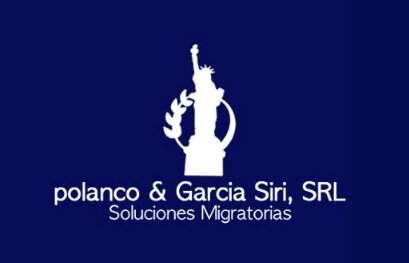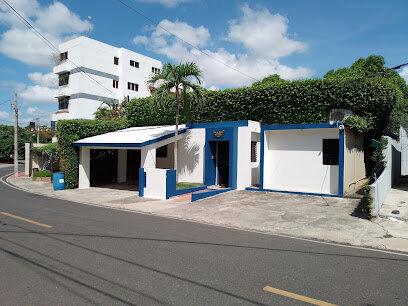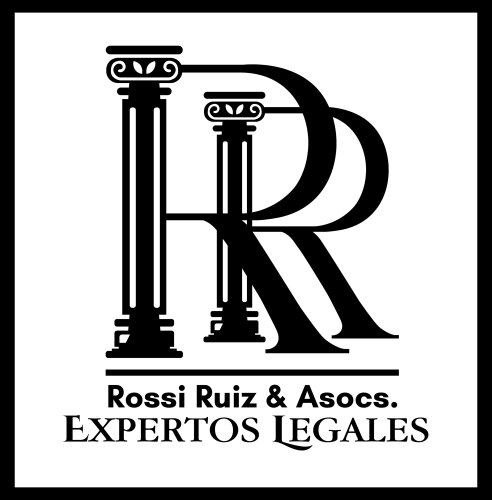Best Civil & Human Rights Lawyers in Dominican Republic
Share your needs with us, get contacted by law firms.
Free. Takes 2 min.
Or refine your search by selecting a city:
List of the best lawyers in Dominican Republic
About Civil & Human Rights Law in Dominican Republic
The Dominican Republic, as a signatory to various international human rights treaties, is committed to upholding civil and human rights within its jurisdiction. The Constitution of the Dominican Republic guarantees fundamental rights like equality before the law, freedom of expression, and protection against discrimination. The country acknowledges the Universal Declaration of Human Rights, and its local legal framework aims to secure the dignity, freedoms, and rights of all individuals residing within its borders.
Why You May Need a Lawyer
Individuals in the Dominican Republic may require legal assistance in civil and human rights for several reasons. If you are experiencing discrimination based on gender, race, religion, or sexual orientation, you may need legal help to file a complaint and seek justice. Instances of police misconduct, violation of privacy, unlawful detention, or infringement of freedom of speech are other scenarios where legal counsel is essential. Additionally, those who face labor rights violations or have been denied access to public services based on discriminatory practices should consult with a specialized lawyer for guidance.
Local Laws Overview
Civil and human rights laws in the Dominican Republic are primarily enshrined in the Constitution, which serves as the supreme law. Key aspects include the prohibition of discrimination in any form, the right to privacy, and freedom of expression. The judiciary has the power to interpret these rights and ensure they are enforced through appropriate legal channels. Labor laws protect workers' rights to fair wages and safe working conditions, and the Criminal Code includes provisions regarding hate crimes and abuse of power by officials.
Frequently Asked Questions
What are my basic human rights in the Dominican Republic?
The Constitution provides for rights such as equality, freedom of expression, privacy, and protection against discrimination. These rights are meant to safeguard individual dignity and freedom.
How do I file a complaint if my rights are violated?
You can file a complaint with local human rights organizations, the Attorney General’s office, or through the judicial system with the help of a lawyer specializing in human rights.
Are there legal protections against discrimination?
Yes, the Constitution and various laws prohibit discrimination based on race, gender, religion, or sexual orientation. Legal measures can be taken if discrimination occurs.
What should I do if I experience police misconduct?
You should report the misconduct to a higher authority within the police department, seek assistance from human rights organizations, and consider legal action with the help of a lawyer.
How are workers' rights protected?
Workers are protected under labor laws that ensure fair wages, safe working conditions, and freedom from workplace discrimination. Violations can be reported to labor unions or the Ministry of Labor.
Can I get legal assistance if I cannot afford a lawyer?
Yes, there are organizations and legal aid services in the Dominican Republic that provide free or low-cost legal assistance to individuals who cannot afford private legal counsel.
What are my rights regarding freedom of expression?
You have the right to express your opinions freely, within the boundaries set by law to protect public order and prevent harm. Legal systems can uphold this right against unjust restrictions.
How are privacy rights upheld?
Privacy rights are protected under the Constitution, and any unlawful invasion or interception by authorities or private parties can be legally challenged.
Are there special protections for vulnerable groups?
Yes, laws provide additional protections for women, children, and individuals with disabilities to prevent exploitation and discrimination, ensuring they have equal access to resources.
What international human rights treaties does the Dominican Republic follow?
The Dominican Republic is a signatory to the Universal Declaration of Human Rights and other treaties, including agreements on civil and political rights, and they are incorporated into national law.
Additional Resources
Several organizations and governmental bodies can offer assistance and information regarding civil and human rights in the Dominican Republic:
- The Dominican Republic Human Rights Commission
- The Ministry of Human Rights
- Amnesty International Dominican Republic
- The Ombudsman’s Office
- Local Non-Governmental Organizations (NGOs) focusing on human rights
Next Steps
If you believe your civil or human rights have been violated, consider taking the following steps:
- Document the incident, ensuring you have evidence such as photographs, witness statements, or correspondence.
- Contact a local human rights organization for guidance and support.
- Seek legal counsel from a lawyer specializing in civil and human rights. They can advise on the feasibility of pursuing a legal claim.
- Decide whether to file a formal complaint or take legal action. Legal professionals can assist with navigating the judicial system.
Lawzana helps you find the best lawyers and law firms in Dominican Republic through a curated and pre-screened list of qualified legal professionals. Our platform offers rankings and detailed profiles of attorneys and law firms, allowing you to compare based on practice areas, including Civil & Human Rights, experience, and client feedback.
Each profile includes a description of the firm's areas of practice, client reviews, team members and partners, year of establishment, spoken languages, office locations, contact information, social media presence, and any published articles or resources. Most firms on our platform speak English and are experienced in both local and international legal matters.
Get a quote from top-rated law firms in Dominican Republic — quickly, securely, and without unnecessary hassle.
Disclaimer:
The information provided on this page is for general informational purposes only and does not constitute legal advice. While we strive to ensure the accuracy and relevance of the content, legal information may change over time, and interpretations of the law can vary. You should always consult with a qualified legal professional for advice specific to your situation.
We disclaim all liability for actions taken or not taken based on the content of this page. If you believe any information is incorrect or outdated, please contact us, and we will review and update it where appropriate.
Browse civil & human rights law firms by service in Dominican Republic
Dominican Republic Attorneys in related practice areas.
Browse civil & human rights law firms by city in Dominican Republic
Refine your search by selecting a city.
















